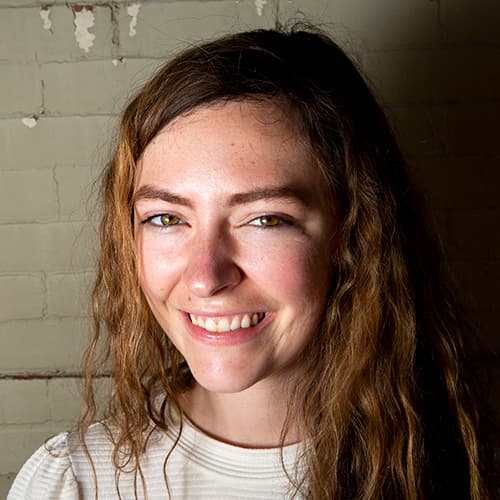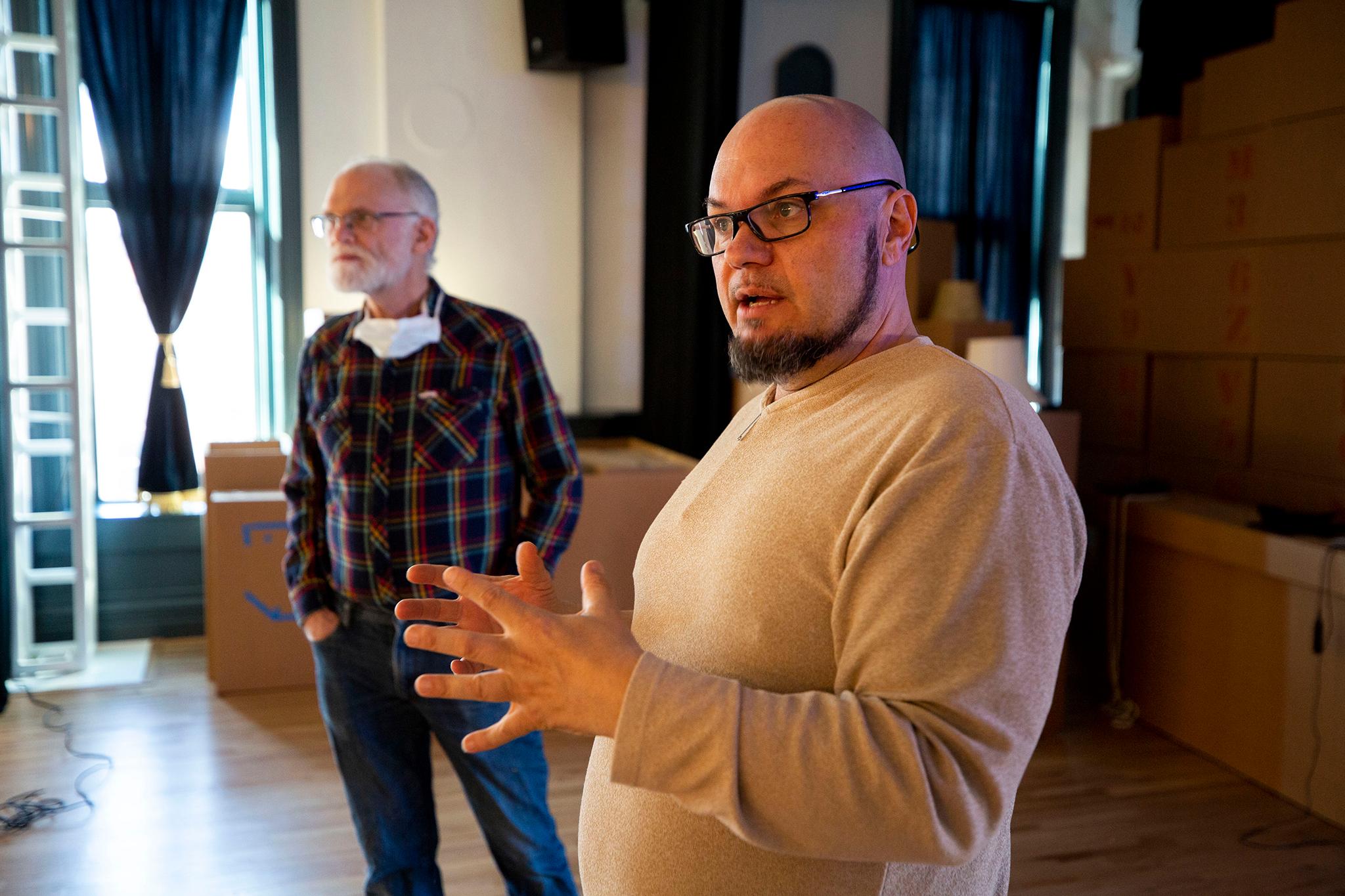Claud Kasiah began writing a composition for Playground Ensemble's latest concert while he was in prison, and finished it after his release in October 2021.
"I love music," Kasiah, who is from Denver but now lives in New Mexico, said. "But that chance to put something out and show that those of us who've gone to prison, or are in prison, are more than just their crime, or their sentence -- I couldn't even pass that up."
Writing a musical composition in prison has its difficulties. Kasiah didn't have access to the instruments or tools he needed to write. He developed a rapport with some of the captains and lieutenants, and Conrad Kehn, Playground Ensemble's founding director, worked with the chaplain's office to get Kasiah access to an electric keyboard. Kasiah said the computers in prisons are reserved for things like resume writing, so he had to write his composition by hand, playing some notes on the keyboard and scribbling down his thoughts, revising as he went.
"I took some of my feelings, my emotions and some of my experiences while I was doing this time and, to the best of my ability, I just put that in music," Kasiah said.
The piece is called H.M. 212, a reference to the number of Hamburger Monday meals Kasiah had in prison. The piece itself is broken into four movements that convey the passage of time, Kasiah's journey towards personal growth and the repetition of life in prison -- the same meals on rotation, the same routines, the same sights and sounds day after day.
"The different sections, they're really kind of almost like looped samples of thought," Kasiah said. "Because that's what prison is like. There's minor variations and stuff like that. There's emotional highs and lows. There's violence, and then there's huge periods of inactivity. But under it all, there's repetition. Not much changes."
The piece is "slow. It's quiet," Kasiah said. "There's sweet moments and sad moments and it's all kind of wrapped up together."
He said the hardship and struggle people encounter in prison can change you in negative or positive ways.
"It really depends on your support system, and what kind of things are in place to help you make those steps," he said. "I was a fortunate one in that the people that were in my life outside of prison were positive influences, and helped me see when I was making positive change and helped me see when my behaviors were right back where I started."
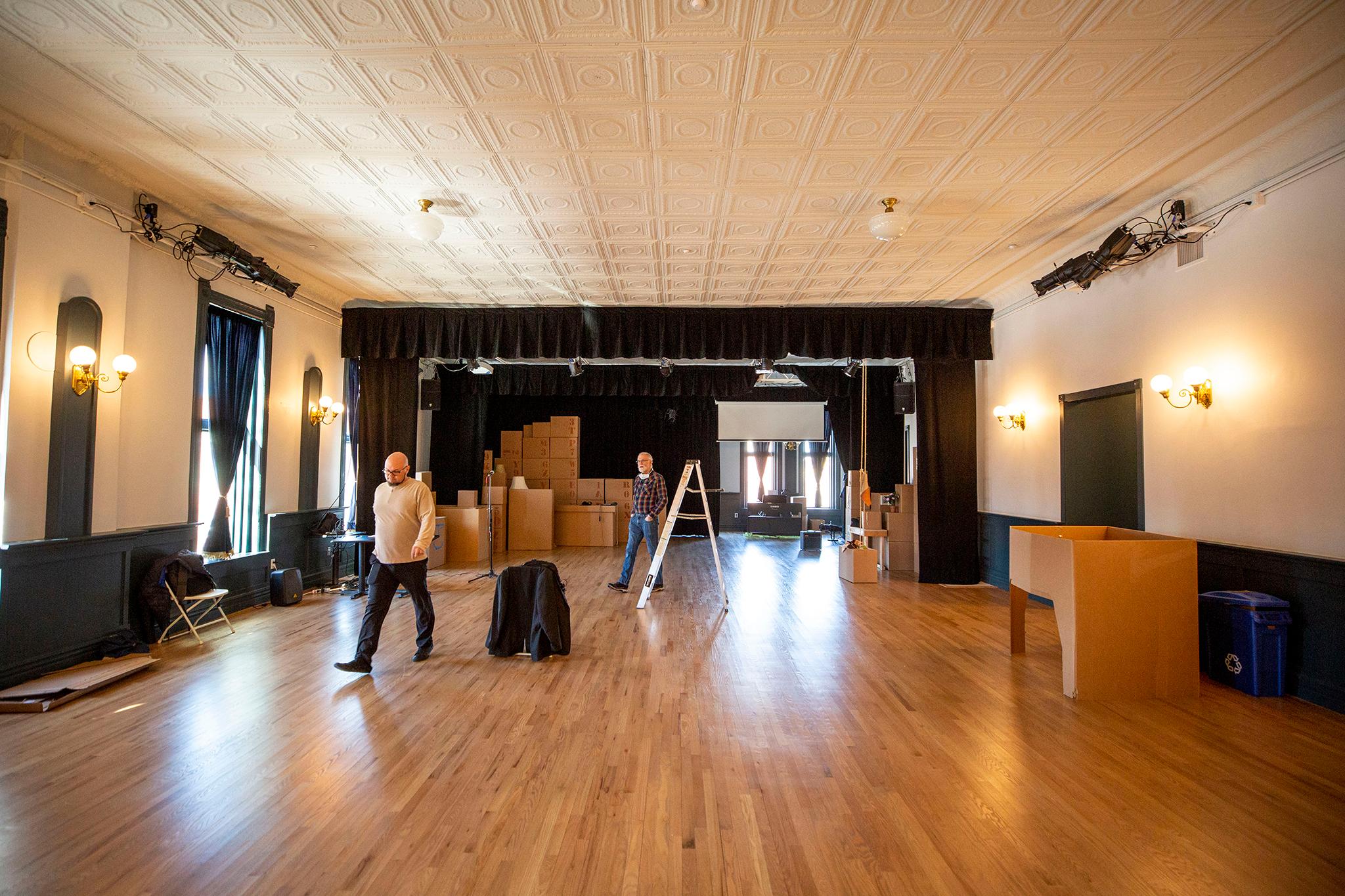
H.M. 212 will debut as part of Reenter, Remerg, Reform, a one-night-only concert presented by Playground Ensemble and the nonprofit Remerg at Savoy in Curtis Park.
The program includes several instrumental performances incorporating poems, journal entries and other works by currently and formerly incarcerated individuals.
"It really is just about providing an event that people would want to go to, and using music and art to help communicate these stories and raise money," Kehn said.
In 2020, as venues and arts spaces shut down around the city, some arts organizers saw an opportunity to pause and rethink what they were doing. Some groups permanently restructured their programming to be more accessible to a wider audience. Some made efforts to be more socially conscious in the midst of the country's racial justice movement.
Playground Ensemble, a chamber-music group in residence at Metro State University of Denver, decided to build its returning season on the concept of "Re:" rebuilding, redesigning, renewing, recovering, recreating.
"We're trying to make sure that when we put concerts together, we're not just programming music to program music, but that we're also thinking about the times we live in and the world we live in," said Conrad Kehn, the group's founding director. "Any organization that didn't look at the way it programs during COVID and in light of all the George Floyd stuff just missed the opportunity to really reevaluate who they are. If you're still doing the same things you did before that... I don't know, good luck."
For their sixteenth season, Playground Ensemble decided to partner with a group doing work around recidivism - when a formerly convicted person commits another crime after release. It's a topic that spoke to Kehn, who for years has taught community college classes. Some of his all-time favorite students are currently or formerly incarcerated, and have moved in and out of the prison system.
They decided to reach out to Remerg, a local nonprofit dedicated to combating recidivism by connecting formerly incarcerated people with the resources, employment opportunities and mentorship they need to succeed outside of prison.
When Remerg founder Carol Peeples got the call about a possible collaboration with Playground Ensemble, it struck her that chamber music and recidivism aren't two things that typically appear in the same sentence. Her first thought was: "What the heck, let's go for it!"
"This is such a cool opportunity for everybody," Peeples said. "It's an unusual event. So I think it's gonna be a really neat community event."
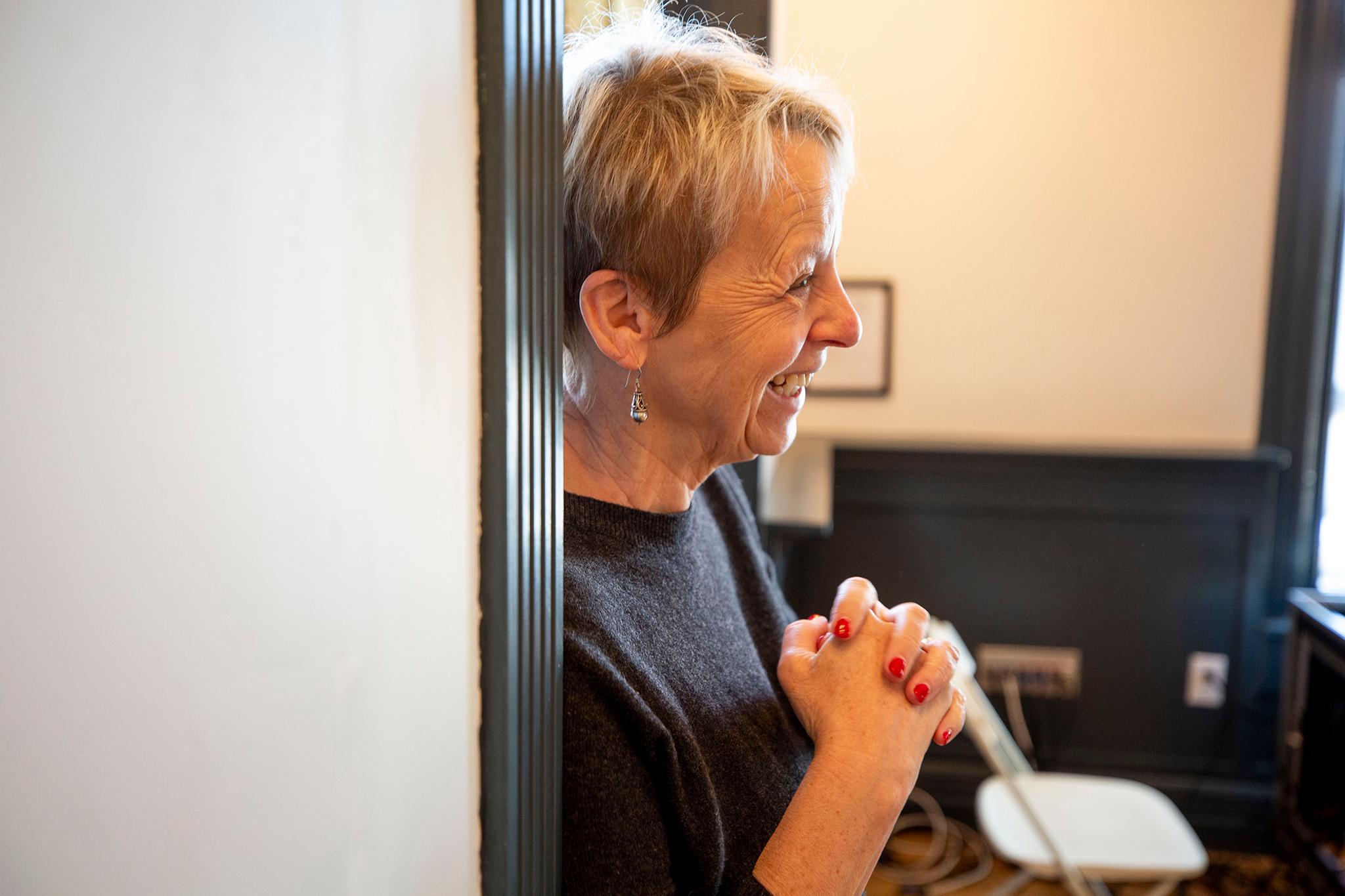
The concert will feature selections by three different composers.
The first is H.M. 212. The second selection is a two-part commission by Denver composer Stacy Fahrion. The first part, Echoes from Inside, blends electronic sound with clips of audio-recorded interviews with incarcerated people to help paint a picture of what it's like to be part of the U.S. prison system. Playground Emeritus Board Member Richard vonFoerster built pen-pal relationships with a number of inmates over the years, sending them letters and recording phone conversations with them, in which he'd ask questions like, "What do you want people to know about you?" and "What do you miss the most?" Their responses are strung together in one cohesive piece that builds an emotional bridge between the experiences of those incarcerated and those outside prison walls
The second part in Fahrion's piece, Buried Alive, sets a poem by Rick Anderson and Nathan Ybanezto to music performed by a string trio. Anderson is currently incarcerated in Sterling Correctional Facility, where he works in the library and writes poetry. Ybanez, who's now free, learned about poetry while incarcerated in Colorado's prison system. For both, poetry has functioned as an escape from the harsh conditions of prison and a way for them to reconnect with themselves.
The third selection of the program is Coming Together, a work by the famed late composer Frederic Rzewski based on the writings of Samuel Melville, an activist and former inmate of the Attica Correctional Facility. Melville was killed in the 1971 riots, a prisoner response to the prison's brutal conditions. The text reflects with great clarity on life in prison -- its hardships, the passing of time and the writer's relationship to his environment. Melville's writing will be read by Eric Davis of the DU Prison Arts Initiative, and the composition will be performed by a small ensemble.
As part of the event, Remerg will also be showing videos about some of the organizations they work with that provide services like career development for formerly incarcerated individuals. The clips highlight the success stories of some of the people Remerg has worked with.
Kehn hopes the program helps people better understand the issues around recidivism.
"We want them to recognize that there's people out there rebuilding their lives," he said. 'We want them to recognize that there are organizations out there that need our support, that our criminal justice system is based on retribution, not rehabilitation, and that recidivism is a huge problem."
According to World Population Review, Colorado's recidivism rate is 50%, meaning that about half of people who've been released end up back in the criminal justice system. Critics say high recidivism rates show that punitive systems do not work -- that instead of rehabilitating people into contributing members of society, prisons are designed to keep people locked up, and at the financial cost of taxpayers.
"It's just not a real solution to multiple problems," Kehn said. "You know, being poor, being mentally ill, and maybe having substance abuse problems, or the color of your skin. Like, the idea that somehow you are pre flagged for this system, and how hard it is to get out once you're in, is something that should be done differently."
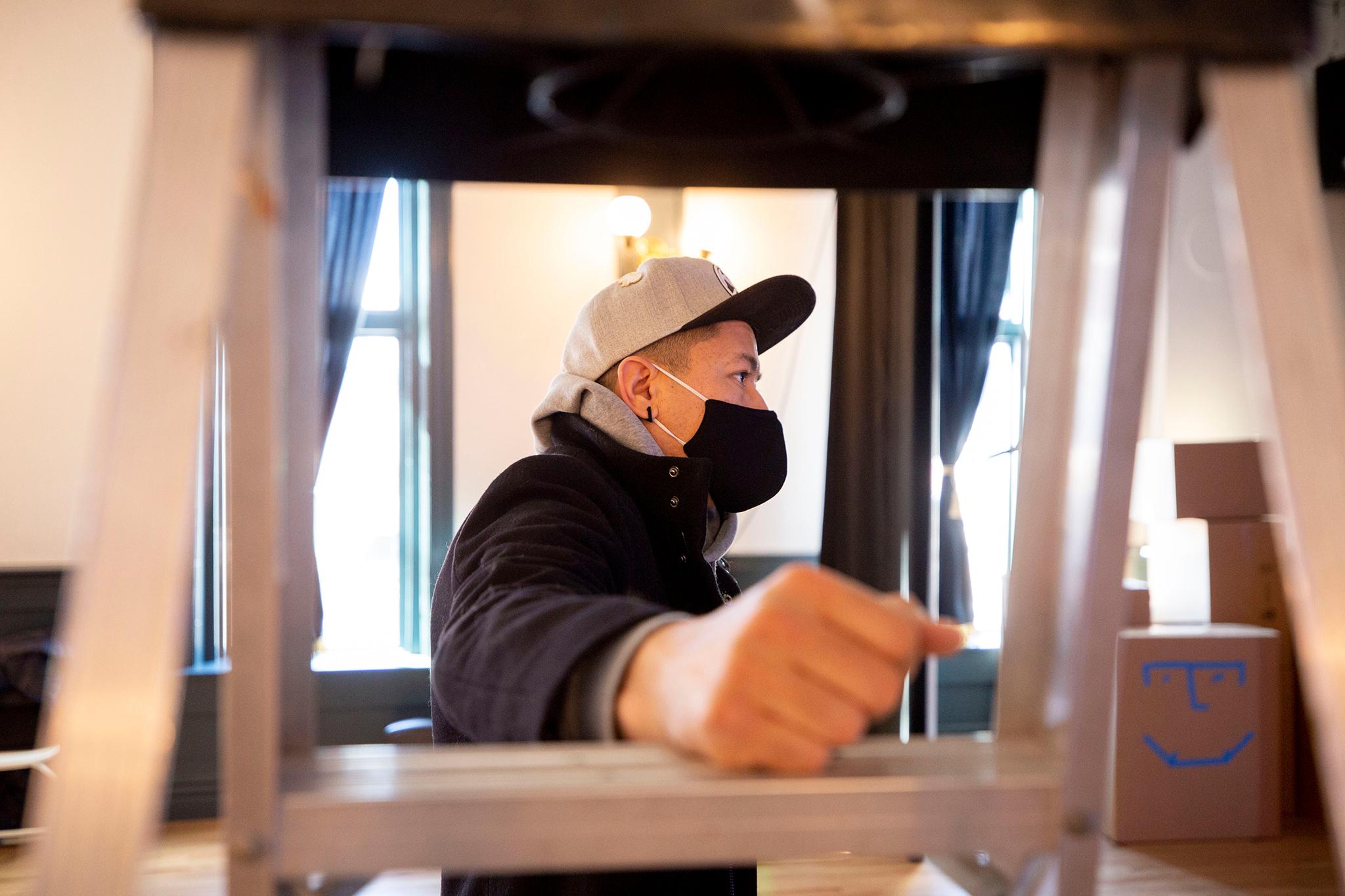
Peeples' hopes for the event are twofold: that the music and testimonies might help people empathize with individuals who've been incarcerated and better understand barriers to success in reentry, like finding housing and employment; and that people going through these challenges will be inspired by the success stories presented in the videos, and see that there are pathways to success.
"I think what people will feel is hope," Peeples said. "Stories of success provide hope to everybody. And an evening like this, where you have people being vulnerable about their stories, warrants kind of our shared humanity."
Kasiah wants to do more composition work for film. He said he hopes that working on their piece opens more doors for him.
"I hope that it's something that will end up on Google that's not a mug shot," he said. "My digital fingerprint is that. And, you know, that's a big thing in today's world."
He also hopes the program helps humanize people who've been incarcerated, and that the people who hear H.M. 212 can know him and see him a bit more clearly.
"It's easy for us, I think, as a society, really to block off that part of our reality and say, 'Oh, I don't want to deal with this. These people are criminals, they deserve what they've gotten,'" Kasah said. "And in large part, that's true. I deserved what I got. So I'm not a victim here. But I want people to understand that there's real human beings that are in prison that can still contribute positively to the world around them, given the opportunity."
Reenter, Remerg, Reform will take place Friday, Feb. 25, at 7 p.m. and 9 p.m. at Savoy in Curtis Park. Tickets are $20. Masks and proof of vaccination are required.
